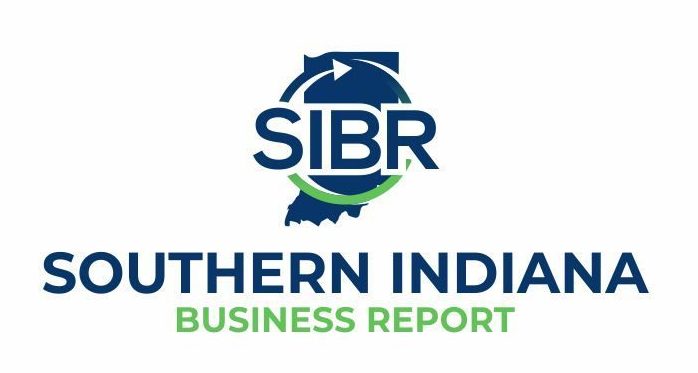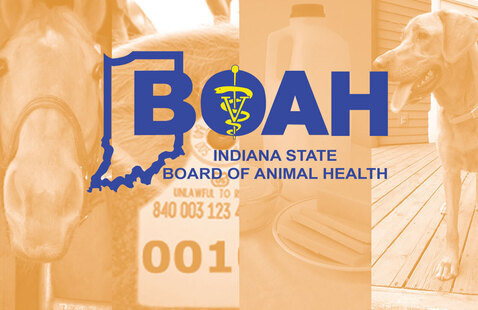Southern Indiana Business Report
DUBOIS COUNTY — The number of Southern Indiana farms impacted by highly pathogenic avian influenza (HPAI) has increased to six, and 171,281 turkeys have now been euthanized in Dubois and Greene counties since Feb. 9 to contain the spread of the disease. The Indiana Board of Animal Health (BOAH) announced March 1 that it’s responding to a presumptive case at a fourth Dubois County turkey farm after laboratory testing identified H5 avian influenza there. Samples are being verified at the USDA National Veterinary Services Laboratory in Iowa, and depopulation efforts are already underway on the premises, which houses 16,500 birds.
Background
The situation began to unfold when HPAI was identified in a single commercial turkey flock in Dubois County back on Feb. 9. The incident marked the first report of HPAI in commercial poultry in the United States since 2020 and the first in Indiana since 2016. (That 2016 incident also happened in Dubois County, which is Indiana’s top county for turkey production.)
Samples were collected from the birds on Feb. 7 and submitted to the Indiana Animal Disease Diagnostic Laboratory at Purdue University after approximately 100 birds died, the flock appeared lethargic, and consumption of water decreased. Tests indicated a likely infection of an H5 avian influenza virus.
Under standard protocols, the results were reported to BOAH, which authorized prompt transport of the samples to the National Veterinary Services Laboratory in Iowa for confirmatory testing. NVSL confirmed that the virus present was a highly pathogenic strain of H5N1 (with a Eurasian H5 goose/Guangdong lineage). Upon confirmation of HPAI, the 29,000 turkeys in the flock (known as Dubois 1) were depopulated to prevent the spread of the disease in the area.
On Feb. 15, laboratory testing of a second commercial flock of turkeys in Dubois County identified the H5 avian influenza virus. Upon confirmation of HPAI, the 26,473 turkeys in the flock, known as Dubois 2, were depopulated to prevent the spread of the disease in the area.
On Feb. 18, laboratory testing identified H5 avian influenza in a commercial turkey flock in Greene County. A total of 15,400 turkeys in the flock known as Greene 2 were depopulated.
On Feb. 22, laboratory testing identified H5 avian influenza in a commercial turkey flock in Dubois County. A total of 35,908 turkeys in the Dubois 3 flock were depopulated.
Ongoing measures
A 10-kilometer control area has been established around each HPAI-affected flock. All commercial flocks in the control areas must be tested for avian influenza at least weekly. Small hobby flocks are also subject to testing. A surveillance zone is also established in the 10-km circle beyond the control area. Flocks in the surveillance zone must be tested every other week.
As part of existing avian influenza response plans, federal and state partners are working jointly on additional surveillance and testing in areas around the affected flocks. According to BOAH, the United States has the strongest avian influenza surveillance program in the world. USDA is working with its partners to actively look for the disease in commercial poultry operations, live bird markets and in migratory wild bird populations.
Food safety
Avian influenza does not present a food safety risk; poultry and eggs are safe to eat. Officials are not aware of any public health significance with this virus. No cases of human infection have been reported. Human health agencies will be monitoring workers and others in contact with birds to monitor for influenza-like illness.
Animal health
Hobby poultry owners are encouraged to be aware of the signs of avian influenza and report illness and/or death to the USDA Healthy Birds Hotline at 866-536-7593. Callers will be routed to a state or federal veterinarian in Indiana for a case assessment. Dead birds should be double-bagged and refrigerated for possible testing.
Signs include sudden death without clinical signs; lack of energy or appetite; decreased egg production; soft-shelled or misshapen eggs; swelling or purple discoloration of head, eyelids, comb, hocks; nasal discharge; coughing; sneezing; lack of coordination; and diarrhea. A resource for backyard bird health information is available online at www.aphis.usda.gov/aphis/ourfocus/animalhealth/animal-disease-information/avian/defend-the-flock-program/dtf-resources/dtf-resources.
Situation updates and status reports about ongoing avian influenza activities, along with critical disease-related information, will be posted online at https://www.in.gov/boah/species-information/avianbirds/highly-pathogenic-avian-influenza/. Users may subscribe to email and/or text updates on a subscribe link at that page.
Mental health
Community members who are affected by this animal health emergency are urged be aware of the possible impact on their mental health and to seek assistance if needed. Available resources include:
• Be Well Indiana. Feeling overwhelmed, stressed, anxious or alone? Call this free, confidential resource that’s available 24/7 to anyone in the state of Indiana. Call 2-1-1 and enter your ZIP code. Follow the prompts and select number 3 for the Be Well Crisis Helpline.
• Farm Aid: This organization connects farmers with helpful services, resources and opportunities specific to their individual needs. Call the Farmer Hotline for immediate assistance Monday through Friday from 9 a.m.-10 p.m. EST. Call 1-800-FARM-AID (1-800-327-6243).
• National Suicide Prevention Lifeline: Provides 24/7, free and confidential support for people in distress, as well as prevention and crisis resources for you or your loved ones. Dial 9-8-8 or call 1-800-273-TALK (1-800-273-8255).
About Indiana poultry production
Indiana is a leading producer of poultry, eggs and poultry products. Nationally, Indiana ranks first in ducks, second in layer chickens and table eggs, and third in turkeys. The state is also a major producer of broilers.



